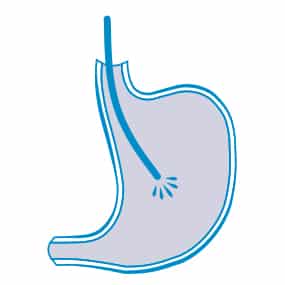
Gastroscopy is a procedure that allows a doctor to examine the inside of the oesophagus (food pipe), stomach, and duodenum (upper part of the small intestine) using a thin, flexible tube with a camera and light on the end. This tube is called a gastroscope.
Gastroscopy is a common procedure for people who are considering weight loss surgery. It is used to check for any conditions that could affect the surgery or make it more difficult to perform. Gastroscopy can also be used to diagnose and treat certain conditions that can develop after weight loss surgery, such as ulcers and gastritis.
Reasons for gastroscopy before weight loss surgery
Gastroscopy may be performed before weight loss surgery to:
Reasons for gastroscopy after weight loss surgery
Gastroscopy may be performed after weight loss surgery to:
What to expect during a gastroscopy
Gastroscopy is usually performed on an outpatient basis. This means that you will be able to go home the same day as the procedure.
Before the gastroscopy, your doctor will give you a sedative to help you relax and make the procedure more comfortable. You may also be given a topical anesthetic to numb the back of your throat.
Once you are sedated, your doctor will insert the gastroscope through your mouth and down your oesophagus into your stomach. The gastroscope will transmit images of the inside of your digestive system to a monitor. Your doctor will then be able to examine the lining of your oesophagus, stomach, and duodenum for any abnormalities.
If necessary, your doctor may take tissue samples (biopsies) from the lining of your digestive system. Biopsies can be used to diagnose certain conditions, such as ulcers, stomach bacteria and rarely tumours.
Gastroscopy usually takes about 15-30 minutes to complete. After the procedure, you will be monitored in a recovery room until you are fully awake and alert. You will be able to go home that same day.
Risks and complications of gastroscopy
Gastroscopy is a generally safe procedure. However, there are some risks and complications that can occur, such as:
Recovery from gastroscopy
Most people recover from gastroscopy quickly and easily. You may experience some mild discomfort, such as a sore throat or bloating, after the procedure. However, these symptoms should usually resolve within a few days.
Your doctor will give you specific instructions on what to eat and drink after your gastroscopy. It is important to follow your doctor’s instructions carefully to ensure a smooth recovery.
Conclusion
Gastroscopy is a safe and effective procedure that can be used to diagnose and treat a variety of conditions in the oesophagus, stomach, and duodenum. For people who are considering weight loss surgery, gastroscopy is sometimes performed as part of the pre-operative evaluation process. It can also be used to diagnose and treat certain conditions that can develop after weight loss surgery.
Gastroscopy (also known as an endoscopy) is an examination of the oesophagus (what you may call your food pipe), stomach and duodenum (upper part of the small bowel) using a flexible telescope called a gastroscope.
Reasons you might have a gastroscopy
You can have an x-ray to examine this part of the body but a gastroscopy is more accurate at detecting diseases and allows for tissue samples or biopsies to be taken. The team at SBC is experienced performing this procedure and will help you feel comfortable.